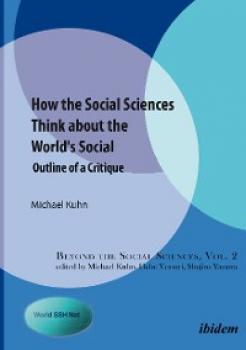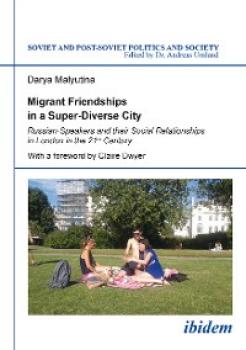ТОП просматриваемых книг сайта:
Социология
Различные книги в жанре Социология, доступные для чтения и скачиванияАннотация
Surrogate motherhood is expanding all over the world. Debates rage over how public policy should consider the signing away of the parental rights of birth mothers in favor of a 'commissioning' couple or an individual.
In this book, Daniela Danna describes the situation in English-speaking countries and worldwide, from California to Greece, presenting the legal alternatives regulating (or not) these peculiar exchanges.
Should surrogacy remain a private agreement? Should it be treated as an enforceable contract? Are surrogate mothers workers? What happens inside the countries that have chosen different ways of handling this new and controversial matter? And, the most important question of all: How can we live in this era of new techno-medical possibilities and try to stay human? Can we resist commodification in the field of human relations concerning procreation?
Contract Children discusses the different ways available to obtain a child through surrogate motherhood. It is fundamental reading for anyone wanting to be involved in the surrogacy process. It gives prospective surrogate mothers and infertile couples the background information necessary for their own informed decision. It is also an essential instrument for policy makers and activists in the field of women's rights, social justice, and children's rights.
The question of how to publicly deal with surrogate motherhood touches upon our social vision of motherhood, ultimately marking the position of women in contemporary society.
In this book, Daniela Danna describes the situation in English-speaking countries and worldwide, from California to Greece, presenting the legal alternatives regulating (or not) these peculiar exchanges.
Should surrogacy remain a private agreement? Should it be treated as an enforceable contract? Are surrogate mothers workers? What happens inside the countries that have chosen different ways of handling this new and controversial matter? And, the most important question of all: How can we live in this era of new techno-medical possibilities and try to stay human? Can we resist commodification in the field of human relations concerning procreation?
Contract Children discusses the different ways available to obtain a child through surrogate motherhood. It is fundamental reading for anyone wanting to be involved in the surrogacy process. It gives prospective surrogate mothers and infertile couples the background information necessary for their own informed decision. It is also an essential instrument for policy makers and activists in the field of women's rights, social justice, and children's rights.
The question of how to publicly deal with surrogate motherhood touches upon our social vision of motherhood, ultimately marking the position of women in contemporary society.
Аннотация
How far have universities in post-Communist states adopted the practices and habits of their branded and consumer-oriented equivalents in the English-speaking world? While not assuming that university education in those states reflects in any mechanistic way the regulated, business-led system long established in places like the US, and now being dramatically realized in countries like Britain, this edited collection identifies some marked shifts in the direction of what might best be described as ‘neoliberalisation’, examining its particularities in local situations where establishment ideologies were, until the early 1990s, deeply alien to all kinds of commercially driven entities. Many of the authors are concerned not only with the linked issues of commercialism, instrumentalism, bureaucracy, and managerialism, framed locally and nationally, but also with the meaning and purpose of universities outside or against their status as efficient gatherers of income. The collection makes specific reference to Lithuania, Hungary, Azerbaijan, Ukraine, Georgia, and Russia, and comprises theoretical as well as empirical studies of diverse but connected subjects, including the marketization of the academy, regional reactions to globalization as expressed in the representational rhetoric of specific curricula, the role and place of civic education, comparisons between educational settings, pedagogies for a critical and ethical consciousness, corporate and state demands and their effects on academic freedom, and the positive potential of new communication technologies. In all these cases, the system of neoliberalism, or rather an uneven process of neoliberalisation, forms a backdrop to the particular issues discussed.
Аннотация
At the beginning of the new millennium, the social sciences discover an epochal “turn” making it necessary to revolutionize their theory-building: As a response to what they call the globalization of the social, they find the need to globalize their theorizing as well.
It is odd to discover after two centuries of colonialism and imperialism, after two world wars and several economic world crises that there is a world beyond the national socials; it is even more strange that the social sciences globalize their theorizing by comparing theories about nationally confined socials and by creating all sorts of, preferably, “local theories”, just as if any national social was a secluded social biotope. Discussing how to globalize the social sciences, they argue that globalizing social science theorizing means finding a way of theorizing that must, above all, be liberated from “scientism” in order to allow a “provincialization” of thinking. Not surprisingly, the globalizing social sciences also rediscover mythological and moral thinking as a means for a “true scientific universalism”.
Michael Kuhn’s new book presents many thought-provoking arguments on the oddities of the globalizing social sciences and on how these oddities are not accidents, but a consequence of the nature of how the social sciences theorize about the social.
It is odd to discover after two centuries of colonialism and imperialism, after two world wars and several economic world crises that there is a world beyond the national socials; it is even more strange that the social sciences globalize their theorizing by comparing theories about nationally confined socials and by creating all sorts of, preferably, “local theories”, just as if any national social was a secluded social biotope. Discussing how to globalize the social sciences, they argue that globalizing social science theorizing means finding a way of theorizing that must, above all, be liberated from “scientism” in order to allow a “provincialization” of thinking. Not surprisingly, the globalizing social sciences also rediscover mythological and moral thinking as a means for a “true scientific universalism”.
Michael Kuhn’s new book presents many thought-provoking arguments on the oddities of the globalizing social sciences and on how these oddities are not accidents, but a consequence of the nature of how the social sciences theorize about the social.
Аннотация
In the past, the European social sciences labelled and discredited knowledge that did not follow the definition for scientific knowledge as applied by the European social sciences as an alternative concept of knowledge, as “indigenous” knowledge. Perception has changed with time: Not only has indigenous knowledge become an entrance ticket to the European social science world, but the indigenization of European theories is seen by some as the contribution of “peripheral” social sciences to join the theories of the “centers”.
This book offers contributions to the discourses about alternative concepts of knowledge, inviting the reader to decide if they are alternative, indigenous, or European types of knowledge. However, in order to make this decision, the reader must know what the nature of the European concepts of science and of scientific knowledge is; this might be a motivation to read a book that presents thoughts claiming to be alternative concepts of knowledge, alternative to the European concept of science.
This book offers contributions to the discourses about alternative concepts of knowledge, inviting the reader to decide if they are alternative, indigenous, or European types of knowledge. However, in order to make this decision, the reader must know what the nature of the European concepts of science and of scientific knowledge is; this might be a motivation to read a book that presents thoughts claiming to be alternative concepts of knowledge, alternative to the European concept of science.
Аннотация
George Herbert Mead taught philosophy and social psychology at the University of Chicago for almost 40 years (from 1894 until his death in 1931). During those years he published many articles and book reviews, but not a single book that contains his theories. After his death, some of his former students published his theories in four volumes. The most important volume is called 'Mind, Self & Society' and was edited by Charles W. Morris (1934). This e-book contains the text corpus from this edition, but does not contain the foreword and remarks by Morris.
Аннотация
Harriet Martineau travelled through the Orient and wrote down her experiences in the work 'Eastern Life'. This book is not just a travel report, but also a historical and sociological study.
Аннотация
After having published several works on economics, Harriet Martineau travelled through the USA and wrote down her experiences in the work 'Society in America' in 1837. This book is a social study, that is known as one of the first sociological studies at all. She focuses on slavery and on women's role in American society and causes controversial discussion in her time.
Аннотация
This timely book offers an integrative and critical approach to the conceptualization of diversity of social ties in contemporary urban migrant populations. It explores the informal relationships of migrants in London and how the construction and the dynamics of their social ties function as a part of urban sociality within the super?diversity of London.
Based on the results of a qualitative study of Russian-speaking migrants, it targets the four main themes of transnationalism, ethnicity, cosmopolitanization, and friendship. Acknowledging the complexity of the ways in which contemporary migrants rely on social relationships, the author argues that this complexity cannot be fully grasped by theories of transnationalism or explanations of ethnic communities alone. Instead, one can gather a closer understanding of migrant sociality when adding the analysis of informal relationships in different locations and with different subjects. This book suggests that friendship should be seen as an important concept for all research on migrant social connections.
Based on the results of a qualitative study of Russian-speaking migrants, it targets the four main themes of transnationalism, ethnicity, cosmopolitanization, and friendship. Acknowledging the complexity of the ways in which contemporary migrants rely on social relationships, the author argues that this complexity cannot be fully grasped by theories of transnationalism or explanations of ethnic communities alone. Instead, one can gather a closer understanding of migrant sociality when adding the analysis of informal relationships in different locations and with different subjects. This book suggests that friendship should be seen as an important concept for all research on migrant social connections.
Аннотация
The European social sciences tend to absorb criticism that has been passed on the European approach and re-label it as a part of what the critique opposes; criticism of European social sciences by “subaltern” social sciences, their “talking back”, has become a frequent line of reflection in European social sciences. The re-labelling of the critique of the European approach to social sciences towards a critique from “Southern” social sciences of “Western” social sciences has somehow turned “Southern” as well as “Western” social sciences into competing contributors to the same “globalizing” social sciences. Both are no longer arguing about the European approach to social sciences but about which social thought from which part of the globe prevails.
If the critique becomes a part of what it opposes, one might conclude that the European social sciences are very adaptable and capable of learning. One might, however, also raise the question whether there is anything wrong with the criticism of the European social sciences; or, for that matter, whether there is anything wrong with the European social sciences themselves. The contributions in this book discuss these questions from different angles: They revisit the mainstream critique of the European social sciences, and they suggest new arguments criticizing social science theories that may be found as often in the “Western” as in the “Southern” discourse.
If the critique becomes a part of what it opposes, one might conclude that the European social sciences are very adaptable and capable of learning. One might, however, also raise the question whether there is anything wrong with the criticism of the European social sciences; or, for that matter, whether there is anything wrong with the European social sciences themselves. The contributions in this book discuss these questions from different angles: They revisit the mainstream critique of the European social sciences, and they suggest new arguments criticizing social science theories that may be found as often in the “Western” as in the “Southern” discourse.










